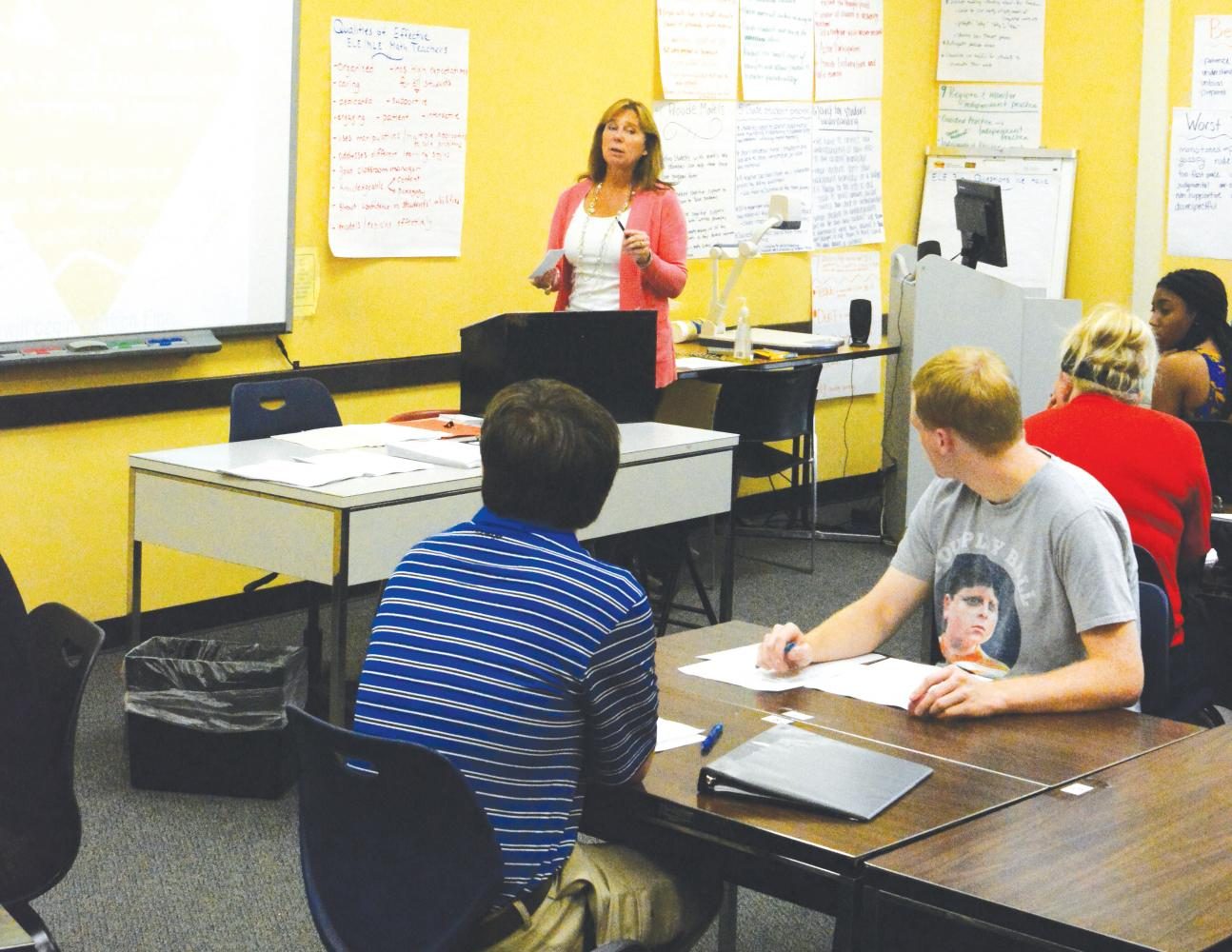School of education selected for professional development grant
Photo by: Caleb Reeves
The FMU School of Education is one of four universities in the country to receive the grant for professional development.
The FMU School of Education is one of four schools in the U.S. to receive a project-based learning grant through the Buck Institute for Education (BIE).
The grant will extend over three years and consists of more than $700,000 in professional development resources.
According to Dr. Tracy Meetze-Holcombe, dean of the FMU School of Education, the BIE program is highly respected within the education field.
“The Buck Institute is the premier resource for project-based learning nationwide,” Meetze-Holcombe said. “It is very expensive professional development but very renowned in the field.”
According to Meetze-Holcombe, project-based learning teaches students how to approach real life problems using a problem-based approach. She said it is helpful because students are more prepared when entering the workforce than they would be if they had only experienced lecture-based learning.
These students will experience multiple aspects of project-based learning, according to Meetze-Holcombe, including learning and teaching in this way.
“The first prong in professional development teaches them what it’s like to be a student in a problem-based classroom, because the reality is many of us have never been a student in that kind of environment,” Meetze-Holcombe said. “The second aspect is learning to teach in a problem-based methodology.”
According to Meetze-Holcombe, the idea for applying for this grant came from Amy McAllister-Skinner, a graduate of the FMU English education program. McAllister-Skinner is currently an employee of the Lake City school district, Meetze-Holcombe said.
The professional development from BIE will train FMU’s student teachers and university supervisors as well as the cooperative teachers, according to Meetze-Holcombe. She said that they will be trained together in a professional learning environment.
Only student teachers assigned to the Lake City school district during spring semesters of the next three years will be able to participate in this professional development opportunity, Meetze-Holcombe said. She said that students who want to participate in this opportunity should request it rather than being randomly placed.
Additionally, Meetze-Holcombe said that students who have shown a strong work ethic during their time at FMU are more likely to be assigned to Lake City.
“This is not an opportunity that we are going to allow people to waste,” Meetze-Holcombe said. “There are so many students who really want the opportunity, so there will be some selection of who gets to go in terms of what they have shown us up to this point, their academic performance.”
According to Meetze-Holcombe, the training students will receive is invaluable and state-of-the-art, and they could not have received it without the grant.
“The excitement for us is that we would’ve never been able to afford to provide our students with this sort of professional development without this grant,” Meetze-Holcombe said. “It’s training that they usually wouldn’t get until they got into the field, but our guys are now going to get it before they even become teachers.”
According to Meetze-Holcombe, the professional development will also assist the students with employability.
“This professional development has been proven to work,” Meetze-Holcombe said. “We know this is what employers are after; there are entire districts that try to go after the problem-based training. Now, our students will have that training so they will be more employable.”
The BIE will conduct a longitudinal study to determine how the collaboration and project-based learning affects student achievement Meetze-Holcombe said.
“All I know about the study now is they have their own group of researchers who will come in and look at whether and how this model affected student achievement in the long run,” Meetze-Holcombe said.
Meetze-Holcombe said that it was one of the biggest and most complex grants she has written.
Both the FMU School of Education and the Lake City school district had to complete the grant process to be selected, Meetze-Holcombe said.
“Both of us had to turn everything in on time and completed and also do a good job with it,” Meetze-Holcombe said. “It’s really neat that we were one of four schools in the nation to be chosen. It’s not just a regional thing.”
Meetze-Holcombe said she is proud that FMU is now able to offer project-based learning to undergraduate education students since it could only offer this learning to graduate students in prior years.
“This was a chance for us to expand on this important teaching to our undergraduate level, and it will really benefit them,” Meetze-Holcombe said.
